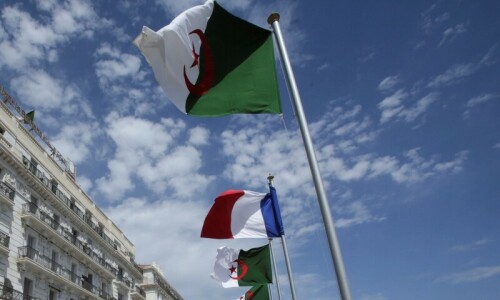KARACHI: Banks have pumped a record over Rs1 trillion into non-bank financial institutions (NBFIs) to avoid incremental tax in case of failure to take the advance-to-deposit ratio (ADR) at 50 per cent by the end of 2024.
The State Bank’s latest report showed that the influx of huge liquidity exceeded the total stock of credits to NBFIs by 130 per cent.
NBFIs are financial institutions that provide selected financial services but do not hold a banking licence.
Banks have been struggling to avoid incremental tax applicable if they fail to increase the ADR to 50pc by Dec 31, 2024. The banks have been trying to dispose of their excess liquidity by increasing lending and reducing deposit size.
Banks have sent notices to their large account holders with up to Rs1bn to Rs5bn asking them to pay a 5pc fee on their deposits.
The record bank lending to the NBFIs reached Rs1,015.38bn from July 1 to Nov 15 against the net debt retirement of Rs55.8bn in the same period last fiscal year, reflecting the same strategy. The credit amount is 130pc more than the total stock of Rs441.6bn as of June 30.
The FY24 noted a net debt retirement of Rs70.9bn, while the net credit to the sector in FY23 was Rs144.7bn.
In April, some bankers said no bank lending could shut down many NBFIs as the high interest rate damages them. During FY24, the SBP policy rate remained at 22pc, which badly hit all sectors of the economy, but banks remained safe due to the government’s extensive borrowing from them.
Most banks were reluctant to finance the private sector and preferred to park their liquidity in risk-free government bonds.
At the end of the third quarter of FY24, NBFIs made a net debt retirement of Rs93bn against Rs140bn borrowing in the same period last year.
However, the reduced government borrowings after the SBP provided Rs2.7tr in profits changed the lending scenario, forcing banks to lend to the private sector and take measures to minimise deposits to meet the 50pc ADR limit to avoid an incremental tax.
Pakistan has a bank-centric financial system where the share of NBFIs remains small and its contribution to financial intermediation is relatively limited.
Bankers believe Pakistan’s financial depth, inclusion and debt-to-GDP ratio lag behind neighbouring and other emerging countries. There is a vast scope for expansion of the financial services sector to raise domestic resources and lend to private businesses for fixed investment, bankers said.
Published in Dawn, December 1st, 2024











































